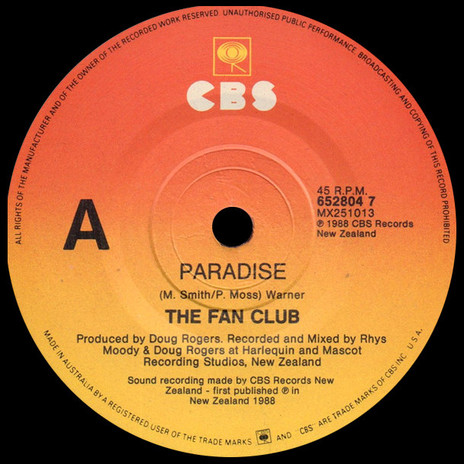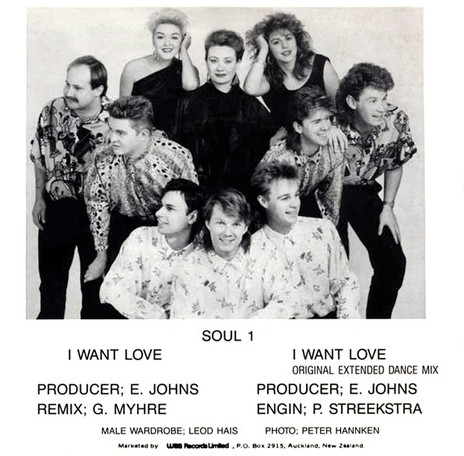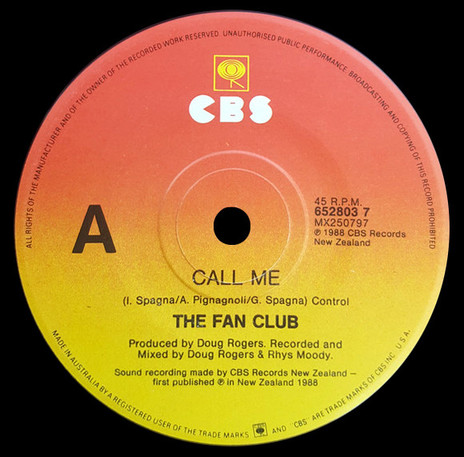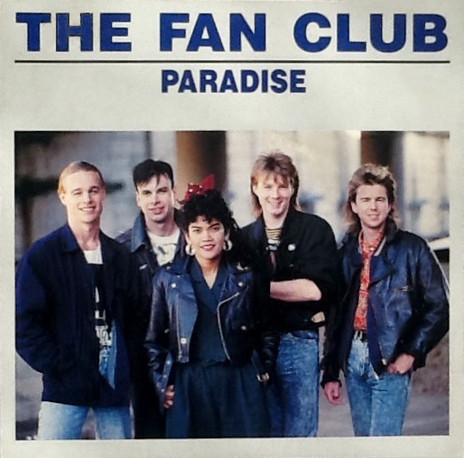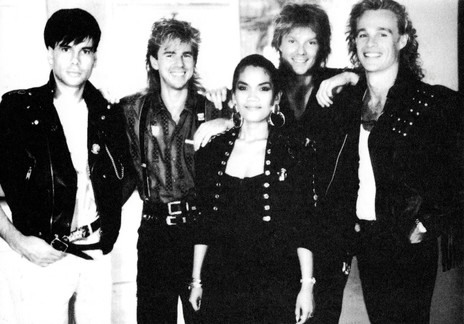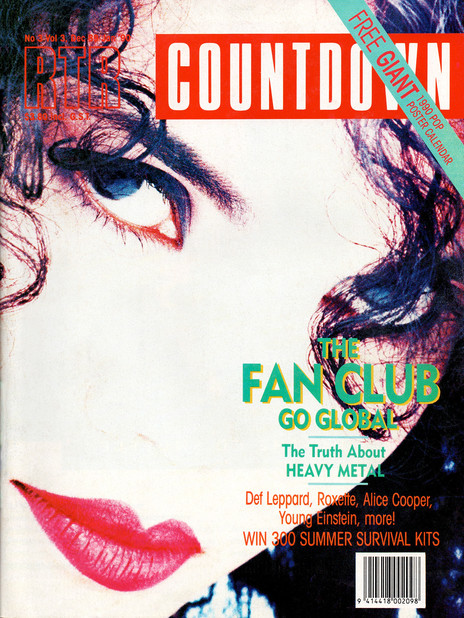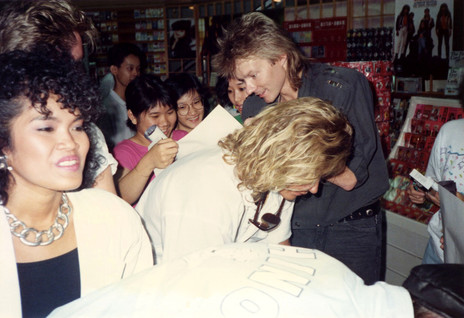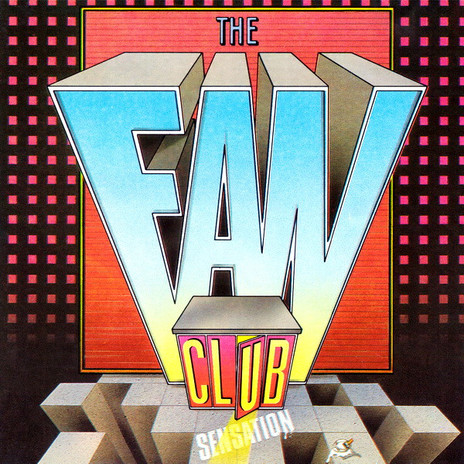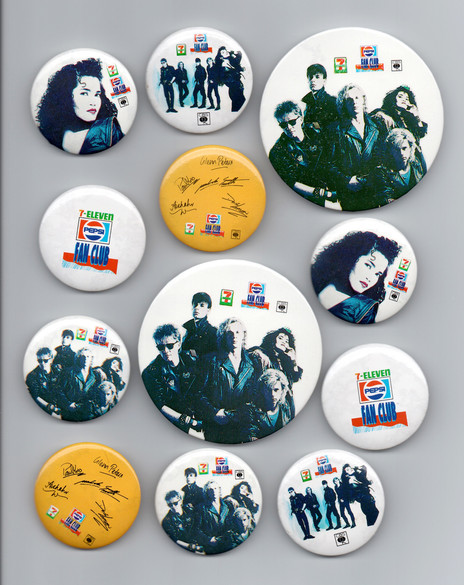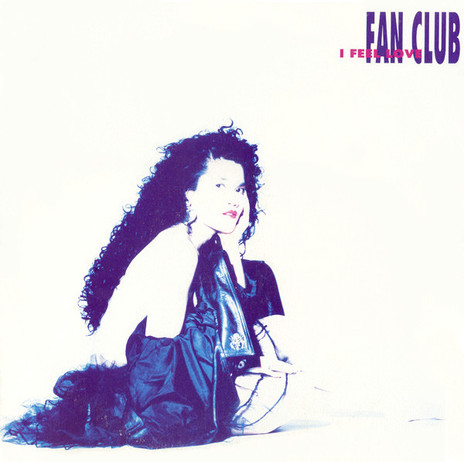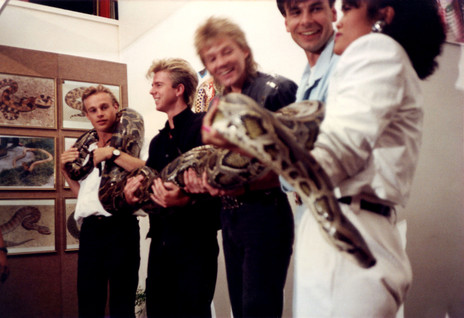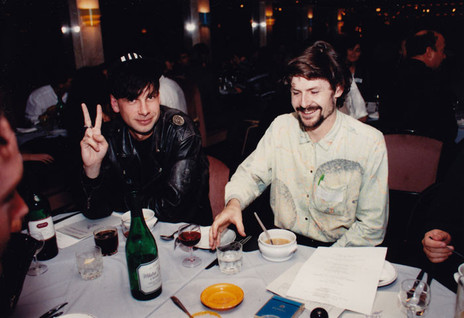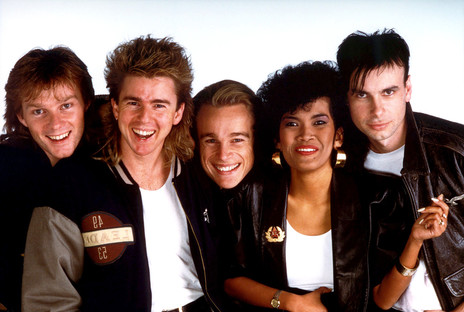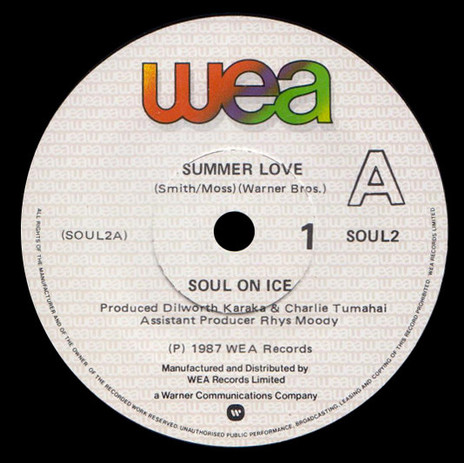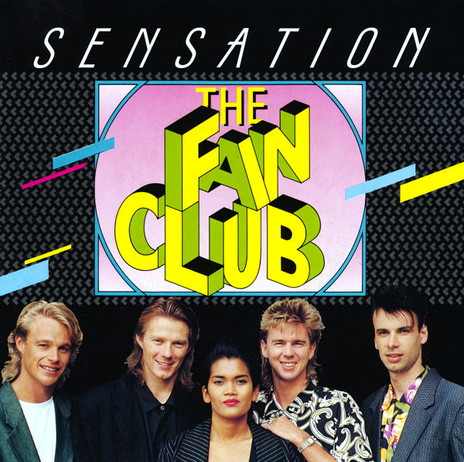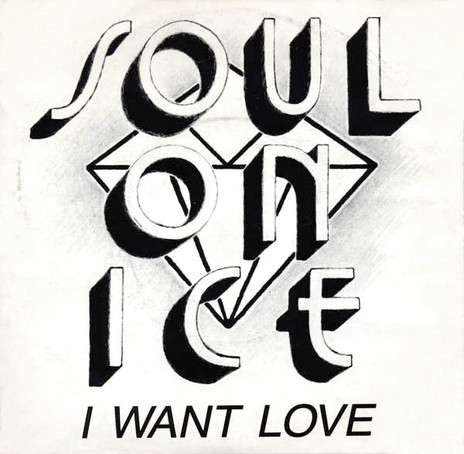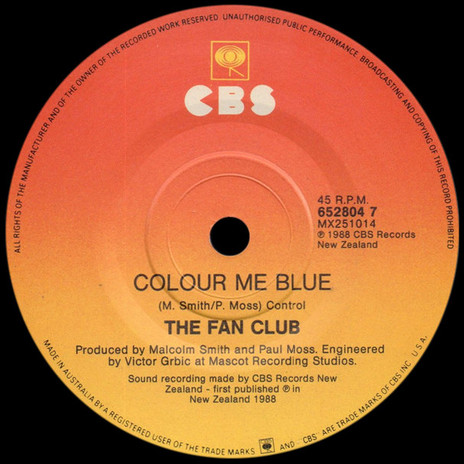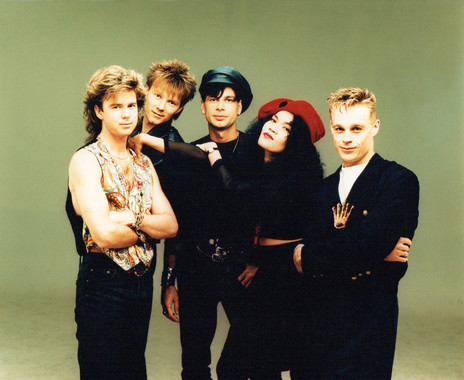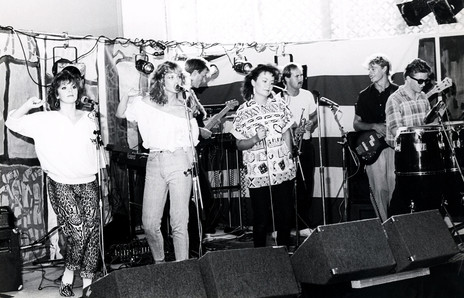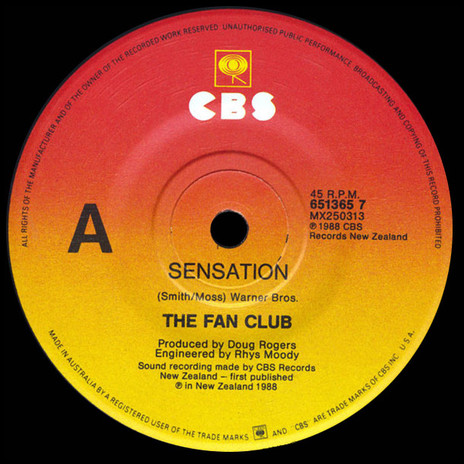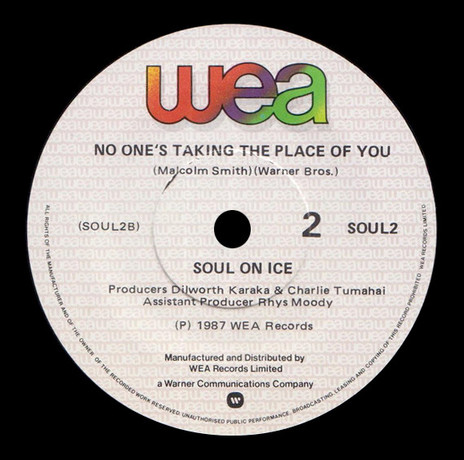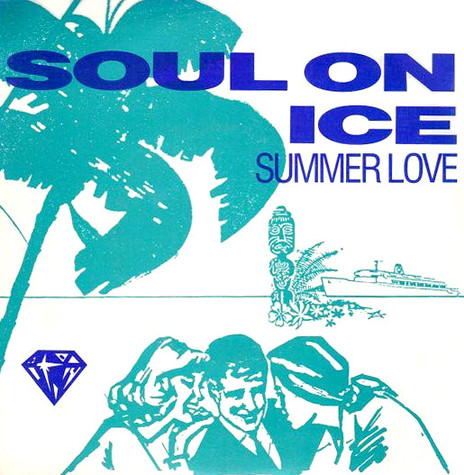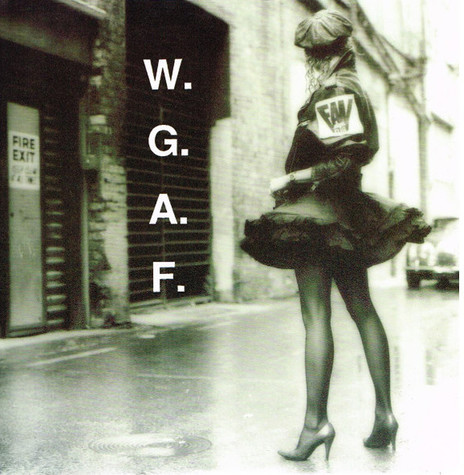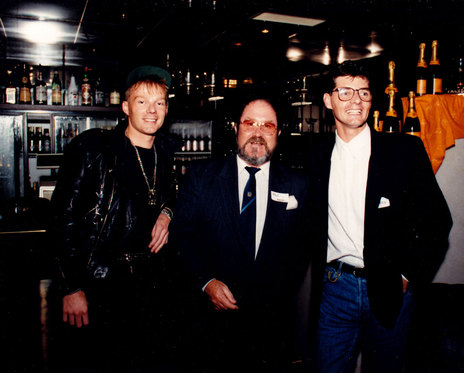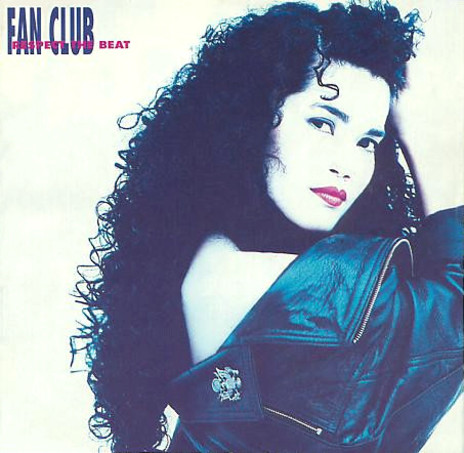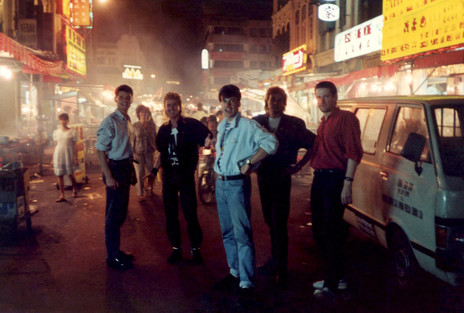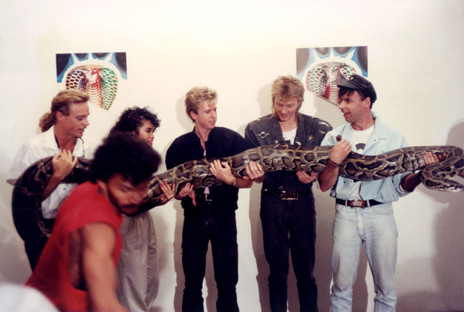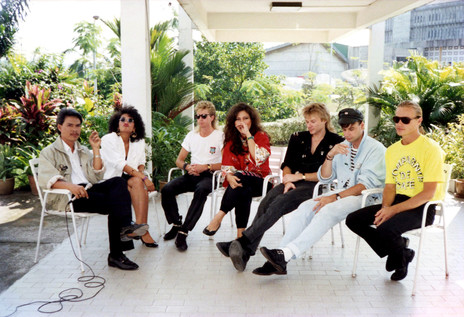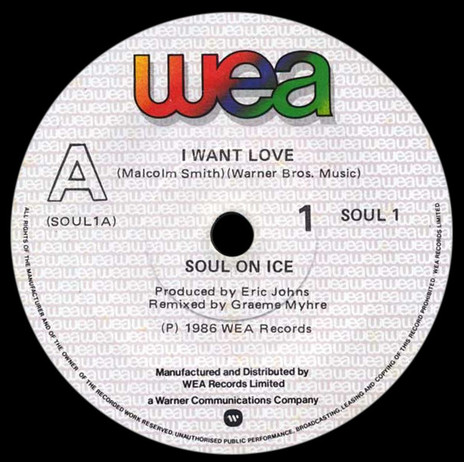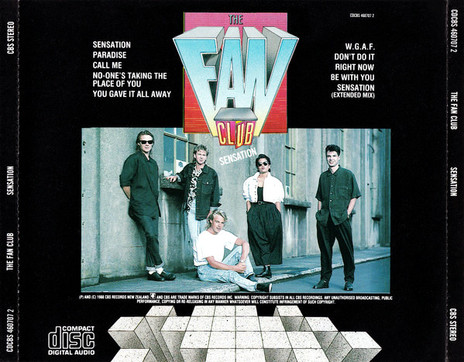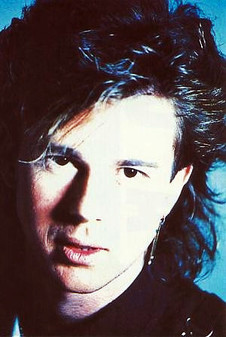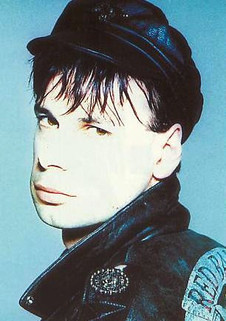Following the dance-pop trends of the UK and North America, Fan Club made good-time songs, about and for people enjoying themselves without any heavy moral message or social commentary; pretty much the purest possible pop.
Along with tight songwriting on cutting-edge electronic gear, the backing of a mighty record label, a manager on the music industry bullet train, and a bleeding-edge album producer, Fan Club found its x-factor with singer Aishah.
Wan Aishah Binti Wan Ariffin — known professionally as Aishah — was always interested in music. As a wee girl, she asked for piano lessons, but chose singing instead when her family said no. Born and raised in Kuala Lumpur, Malaysia, she’d arrange pretend talent shows with the neighbourhood children. “Of course I’d win,” she laughed to the NZ Listener in early 1989.
The practising and pretending paid off, as the schoolgirl was asked to sing for the king (a decade later she would perform for Malaysia’s president, too) and in 1983 she won a recording contract through a Malaysian singing contest. The next year, teen Aishah left her family behind, travelling to New Zealand on a scholarship to complete seventh form at Waitakere College, where she took the lead role in the college’s production of Godspell.
As a schoolgirl Aishah was asked to sing for the King of Malaysia
Continuing her singing, Aishah went on to Auckland University – initially for law, then switching to political science and education. She supplemented her income with handicrafts, made fashionable clothes for herself, and did some part-time singing work in Auckland clubs and bars. She told the NZ Woman’s Weekly, “It’s so difficult to make a solo career in New Zealand, especially when you’re new and a foreigner. People don’t give you a hell of a chance.”
That was about to change, after her cover of Whitney Houston’s ‘The Greatest Love of All’ landed Aishah the runner-up on the 1986 TV talent show Telequest. Other bands were starting to notice too: Peking Man were looking for a new singer to replace Margaret Urlich who had recently started a solo career (and later sang backing vocals on Fan Club’s debut), and Aishah auditioned. Modfather Ray Columbus – who noticed her talent on Telequest – brought Aishah to the attention of Glenn Peters, bassist for Auckland pop band Soul On Ice.
Peters and co-writer/guitarist Paul Moss formed the nucleus of Soul On Ice – originally a 10-piece band playing brassy funk-pop. The pair had played together since their high-school band Garden Gnomes, then were joined by Malcolm Smith to form Days Centrale, and landed a track on Propeller Records’ 1983 post-punk compilation We’ll Do Our Best. Smith had played guitar and written songs since school too, with ska-punks The Killjoys (who had a song on Propeller’s other post-punk compilation, Class of ’81). Days Centrale became Soul On Ice, and by 1986 they found their fourth core member, drummer Dave Larsen (who haplayed with dreamy synth-poppers Marginal Era, famous for ‘This Heaven’ – the Radio With Pictures theme).
The band put out two hot singles, ‘I Want Love’ followed by ‘Summer Love’; the latter was produced by Dilworth Karaka and Charlie Tumahai (Herbs) and stayed on the NZ single charts for three months.
But by late ’86 Soul On Ice was just these four guys and a gal singer – and then just four guys. Singer Liz Diamond left Soul On Ice because she didn’t want to become a full-time musician – like Aishah, she wanted to study law. The Ice guys had seen Aishah around, and they auditioned several singers, but Aishah “was the funniest one. She laughed at all our jokes and she could sing really well so she got hired.”
Aishah agreed, telling NZ Woman’s Weekly, “The guys and I just get on so well. Everybody keeps their sense of humour … the guys are still cracking jokes at 3am when we’re packing up after a gig.” She joined Soul On Ice in the winter of 1987.
“Everyone thought when they heard the music that we were an East Coast American band,” Smith later told RTR Countdown. Aishah’s vocals were so au courant, a Malaysian Madonna, a Kiwi Kylie – softly sitting amongst or cutting through and soaring above the electronics – and she’d only get better as the band grew and grew. And she dressed cute too: at their first gig, Aishah recalls, “I freaked out the guys with my sequinned outfits!”
They jumped right into some high-profile gigs: supporting The Pretenders, the Auckland Greenpeace concert, and performing on television’s RTR Countdown.
Major label CBS was interested in the new Soul On Ice material. The band was instructed to change the name to reflect the drastic change from the original group, and they signed in late 87.
Fan club’s debut LP ‘Sensation’ was
“Guaranteed not to bring you down,” wrote ‘The Press’
As the first album in what was initially announced as a five-year, five-album recording contract with CBS, Sensation was recorded at Harlequin and Mascot studios in February 1988 with Doug Rogers and Rhys Moody, and released in New Zealand that August. The Press praised the title track’s “jerky changes, coupled with synthesiser programming … catchy enough to have plenty of commercial appeal. Guaranteed not to bring you down.”
Sensation spent 13 weeks on the charts in 1988, peaking at No.15, with three singles making the Top 20.
Title track and debut single ‘Sensation’ spent 19 weeks on the NZ charts, peaking at No.11. Smith described it to Kiwi Gold Disc as “a good fun dance song: be a singer, be a dancer, be creative in the arts and have a good time!” The title track bounces with Soul On Ice-ish brass, a speech sample vamping doo-doo-doos and oh-oh-oh-ohs against a Seinfeld-ish DX-7 bassline, and a heroic guitar-synth riff. Driving it all is Aishah’s archetypal eighties popstar voice, from whispery invitation to throaty command and joyful abandon. The ‘Special NY Mega Mix’ remix (on the super-limited 12-inch) incorporated samples from Phortune’s acid house classic ‘Can You Feel The Bass’, possibly the first acid house-inspired remix of a New Zealand song (closely followed by the ‘Atomic Mix’ of ‘Don’t Let Me Fall Alone’ from the next record).
Second single ‘Call Me’ is a faithful cover of the Italo-Disco single by Spagna (rather than the Blondie song). Follow-up ‘Paradise’ was a low-key mid-tempo groover and their third song to make the NZ Top 20. Another album standout is ‘No One’s Taking the Place of You’ (originally a Soul On Ice B-side penned by Smith), a sweet upbeat ballad. Aishah’s honeyed vocals are backed by synthesised strings and chimes and even a teensy sax solo.
Fourth single ‘W.G.A.F.’ is the most experimental and minimalist – and the sexiest – of the lot, with whispery spoke-sung lyrics, alternating unh!s and aah!s and a long percussive break in the middle, perfect for dropping down to the cardboard for a windmill or worm. It’s the track on the record with the closest sound to their dancefloor-driven second record.
The fourth single ‘W.G.A.F.’ was experimental, minimalist – and sexy
The label worked hard promoting the single and album, though with limited live shows – only a quick four-town North Island school holidays tour. The hot young band with the impressively recorded new major label album and a top-20 single received $100 each for the four shows. “We get what’s left at the end,” Peters told the Listener, “Bugger all.”
Aishah however was working hard on her image. She told NZ Woman’s Weekly about her aerobics routine to build stamina for dancing, and the magazine typically noted that her “zingy confidence” was due to her losing two stone in the first year with the band: “A producer said ‘pop stars aren’t supposed to be overweight’ so I went on a diet. People are very critical when you’re in the limelight.”
Trying to shake the teeny-bop image, Fan Club “stepped into the lion’s den”, as writer Dominic Roskrow described it, with a gig at The Gluepot. “We’re looking forward to it because it is a chance to prove we’re a hardened rock band and to show we can perform,” Smith responded in the NZ Herald. Aishah agreed that they’d had “a lot of rubbish thrown at us so it’s important for us to do.” The Listener described the show as “remarkably professional, which looked and sounded first class. The audience were unresponsive, however, until the seventh number ‘Summer Love’, an old Soul On Ice hit, which finally got them on the dance floor. By the end of the night encores were requested and graciously given.”
Despite three hit singles and the LP going gold, the slick rhythms and fashion-conscious imagery left some music fans cold. The Otago Daily Times offered the backhanded compliment that they “just failed to make the top ten on the local charts, peaking at number 11” and that “the group makes quite an impressive sound and is certainly well recorded, but one feels that it has not yet found the right material to get New Zealand pop fans really sitting up and taking notice.” RTR Countdown Magazine said they “looked and sounded so squeaky clean” that you couldn’t take them seriously. Their readers disagreed, voting them tops in the New Zealand category of their 1988 Readers Poll.
Michael Glading, managing director of CBS New Zealand blamed The Great Kiwi Clobbering Machine: “I’m excitable by nature so I went out and made a big noise about it. I wouldn’t say it backfired, but it almost did. If you did that in the UK or America people would sit up and say, ‘what is this band people are talking about?’ ”
AT CBS NZ, Michael Glading saw Fan Club’s international potential
There were even rumours that Fan Club were a pre-fab, like TrueBliss 10 years later – never mind the decade or so of hard work each band member had put in at this point. But Glading saw Fan Club’s international potential – enough to spend $200,000 on recording and promoting the band – and the album was released in Malaysia.
Aishah hadn’t yet told her mum about the band other than to tell her that she had “a project” preventing her from visiting over the summer holidays. A video clip of the ‘Sensation’ single was being screened on all three major television networks there, and a tour of Malaysia and Indonesia was planned. “Mum says, ‘I don’t miss you now, I see you on TV all the time,’” Aishah told NZ Women’s Weekly.
Sensation was the largest-selling English language album in Malaysia, selling 15,000 official copies and an estimated 75,000 bootlegs.
Fan Club first performed in Malaysia in February 1989 for a live concert telecast, and they were astonished by the reaction. Fans and television cameras met them at the airport holding signs reading WE LOVE THE FAN CLUB, and 3000 people turned up for an autograph session. They saw their own faces shining back at them in the windows of fashion shops and were harassed with telephone calls. After a week’s rehearsal in Kuala Lumpur, their show was beamed out to Malaysia, Singapore and Indonesia, with an audience variously estimated at between 20-200 million people.
“They have never had a Malaysian singer who is part of an international band, and there is a lot of pride in that. The girls look up to Aishah and want to look like her,” the band told NZ Musician, “we were just as popular as Aishah – they knew all our names and details.” And Fan Club now had a gold record in Malaysia as well as New Zealand.
Smith recalled manager Paul Ellis’s comments on seeing him just chuck all of his gear into his luggage for their return to New Zealand. “He said, ‘I’ll have to learn to pack better, next year we’ll be living out of a suitcase.’”
But coming back to New Zealand was a bit of a let-down. The hard-working band was still largely dismissed as lightweights by the Kiwi musoscenti. But their drive to succeed meant they had already started planning their next album and were especially excited by the ‘Temptation’ remix of debut single ‘Sensation’ by legendary dance music producer Mark S Berry. CBS Australia had wanted a “tougher” mix for the clubs: “I did a special mix that involved a lot of sampling, a lot of re-editing,” said Berry, “and we ended up with this pretty wild off-the-wall house mix.” The Fan Club loved it, centring their energies on a dance record, and asked Berry to produce.
Fan Club’s single ‘Sensation’ was remixed by dance music producer
Mark S Berry
Berry was an in-demand remixer for artists from Cameo to Kool and the Gang, Talk Talk to Duran Duran, Billy Idol to David Bowie. Born in Brooklyn, New York, he OE’d in London and apprenticed under George Martin. Back in NYC, his heavy on the groove engineering style was perfect for the post-disco dancefloor pop styles crushing it with the crowds in the US and UK.
And Berry was keen as. After a couple of weeks of pre-production, he arrived in New Zealand. Thinking he would want to sleep off his jetlag, the band had planned for a hariru and a cuppa but straight off the plane Berry put them to work. “About midnight we finished with sweat pouring off us, thinking what we might be like after two months of this pressure.” As Berry left for bed, he told them “by tomorrow morning I want a B verse written for this song” and Fan Club worked till 2am, waiving their Kiwi cruisiness. The intense pressure got results.
“This job now is a challenge,” Berry told the NZ Herald, “because that first album is very poppy. There was no street credibility, and it didn’t have a hard sound. For this album we still have the pop songs, but they’re hard, and Aishah sounds like she’s in command on the vocals.”
The new direction and hot production melded with the band’s ambitions: Fan Club was the first New Zealand band to sign with Epic Records. A subsidiary of CBS, Epic was the hottest pop music label of the 1980s, releasing era-defining albums such as Michael Jackson’s Thriller, George Michael’s Faith, Cyndi Lauper’s She’s So Unusual, and Sade’s Diamond Life. Michael Glading recalled, “Epic said, ‘Columbia has Martika and New Kids on the Block – we want this!’”
Respect the Beat (1990) is a turn-of-the-decade upgrade for Fan Club, with bone-rattling beats and sweaty basslines to put a pendulum in your pelvis.
“If it was all too easy to write off The Fan Club after the first album,” wrote Graham Reid, “they are impossible to ignore now. The songwriting and arrangements are a huge leap ahead from Sensation, and that harder edge which Berry has brought sits comfortably with the sound of the band. Smith and Moss also pen a dancefloor-diamond in ‘I Feel Love’ but can drop the mood back to allow Aishah to soar in the ballad ‘Never Gave Up On You’.”
Album opener and first single ‘I Feel Love’ (not to be confused with the Donna Summer/Giorgio Moroder mega-hit) made both the New Zealand and Malaysian Top 10. The boys built their beats on de rigueur Roland 909s etc, the saxophone shrieks instead of serenading, and the track builds and billows with ecstatic energy. Aishah shines like summer sun, and Berry worked her voice like an instrument: on ‘I Feel Love’ there are 40 layered tracks of Aishah’s vocals.
Follow-up single ‘Never Gave Up On You’ is a soulful showcase for the singer, which she later re-recorded as ‘Biarlah Kau Pergi’ (Let You Go) on her 1996 Malaysian-language album Merenung Bulan. CBS included the Fan Club version on a 1990 pop ballads compilation for the Finnish market, alongside Michael Bolton, Alice Cooper and Jefferson Airplane!
Their breakout single in the US was ‘Don’t Let Me Fall Alone’ remixed by Exposé producer Lewis A Martineé and Rique Alonso with distinctly acid-house Roland TB-303 filter squelch. A quarter-page ad was placed in industry paper Billboard, who a fortnight later noted that the single was being played by the States’ “largest and most influential top 40 radio stations”.
Their breakout single in the US was ‘Don’t Let Me Fall Alone’ remixed by Lewis A Martineé
The single was listed by Billboard as one of the most noticeable tracks of July. It was in the Top 20 from June till August, and on hot dance music station WLOL 99 in Minneapolis. In San Diego, Q106 playlisted the song throughout summer with Snap’s ‘The Power’, MC Hammer’s ‘U Can’t Touch This’, and Madonna’s ‘Vogue’. The clip was also a new featured video that summer on The Video Jukebox Network (later The Box). Industry tip sheet Hitmakers recommended the record: “This mass-appeal, dance-edged, up-tempo record is just what the doctor prescribed for the summer. Loaded with hooks and infectious rhythms, ‘Don’t Let Me Fall Alone’ is both smooth and fresh. If you need an up-tempo jam – and who doesn’t – the Fan Club definitely fits the bill.”
Billboard reviewed the new record on 28 July 1990: “New Zealand quintet heavily reflects US influences Madonna and Exposé on second release. Infectious melodies, fluffy swirls of synths, and throaty vocals by Aishah will likely be most welcome at crossover radio, though a bass-savvy remix of the first single, ‘Don't Let Me Fall Alone’ is making a minor dent on dance floors.” Efren Sifuentes, DJ at KDON in Salinas, California, wrote, “Mark Berry is back with his latest project … A GREAT effort from this New Zealand quintet. Lewis Martineé did an excellent job on the single remix; in the Paris By Air vein.” Prime Cuts Remix Services also released a seven-minute Euro House version “strictly for DJs and music industry professionals”, and pop artist Maria Christensen covered the song on her 1993 solo debut. In New Zealand, the single spent seven weeks on the charts, peaking at No.28.
There’s no slouching on the rest of the record. ‘I Don’t Need a Lover’ has a bit of Speak and Spell-era Depeche Mode or Yazoo in its minimalist arrangement and the quirky good cheer of its brassy synth riff, but with bubblier chugging production. ‘I Need You’ is a driving dancefloor-filler, with Aishah’s liquid vocals swimming up and down the scales over James Brown vocal samples, pulsing drums, propulsive bass and sizzling synth. ‘Colour Me Blue’ is another cleverly produced upbeat number with densely layered drums in a subtly strange stereo split, tiny truncated blips chirruping like the sound of a CD fast-forwarding or an MP3 glitch. It’s a fascinating headphone track and must have sounded incredible on the huge sound systems in the larger venues where Fan Club were playing overseas.
While the label was promoting the first singles in Australian and US night clubs, the band was preparing for another two visits to Malaysia, including an eight-date tour in early 1990: “It’s a major tour, some 8000 seat stadiums and none under 3000,” they told NZ Musician. “Big shows with over the top production and lighting.” The band couldn’t hope for a tour like that back home but their popularity in Malaysia afforded them the best.
Fan Club was demonstrably a pop monster – in Southeast Asia. They played six nights at the Hard Rock Café in Singapore, and headlined to a crowd of 50,000 in Kuala Lumpur, with their performance broadcast to Malaysia, Indonesia, Brunei and Singapore. By the beginning of 1991, Respect the Beat had sold more than 20,000 copies in New Zealand, and 30,000 in the States, and Fan Club was voted Best International Act in the 1991 NZ Music Awards.
With Aishah in Malaysia and the band in New Zealand, Fan Club split up in 1993
In the meantime, the record label made it more attractive for Aishah to be based in Malaysia, where she began a solo career. Aishah released nine Malaysian-language solo albums over the next decade, lush and lovingly-produced soul-pop ballads, and cemented her place as a major Malaysian pop icon. Her first self-titled album sold 200,000 copies in the first year, and her debut single won Song of the Year. In 1991 she was voted Best Entertainer and Best Female Singer at the 1991 Malaysian entertainment awards. With Aishah based in Malaysia and the rest of the band in New Zealand, maintaining the band was difficult and Fan Club split up in 1993.
Smith and Moss produced Andrew Fagan’s debut solo single ‘I Still Want You (If You Want Too)’, and Smith continues to work in production and session work, with artists including Bic Runga, Semi Lemon Kola, 3 The Hard Way, and Te Vaka. He is currently a partner in a commercial music production company with major international and local clients.
Moss found that if he wanted to continue making a living in music production, New Zealand was too small, and Australia was too tough. He had made a lot of contacts in Malaysia through Fan Club, the record label and Aishah, and Malaysia’s population was five times that of New Zealand with a strong local music scene. So he relocated and never looked back. His label Positive Tone produced local indie pop and hip-hop, and he hosted Malaysian Idol and its follow-up One In A Million (interestingly, Fan Club’s other Paul – manager Ellis – hosted both New Zealand Idol and New Zealand’s Got Talent).
Aishah continued her singing career, winning Anugerah Industri Muzik’s (AIM) best female vocals in 1995 and 1996, and in 2022 she performed a career-retrospective concert with the Malaysian Philharmonic Orchestra. She ran for parliament there in 2011 and continues involvement with the progressive Islamist party, Amanah.
A practising Muslim, Aishah told the NZ Herald in 1991 that, despite being a singer and dancer, “I believe what really matters is what you feel inside. I don’t see my dress, dancing or lyrics as provocative, and therefore unfaithful – it’s just music.”
In 2017, Amanah secretary-general Mohd Anuar Tahir agreed: “If there are those who criticise, insult, abuse, they have to apologise to Aishah,” he told Free Malaysia Today, “It does not necessarily mean if a person sings that it has something to do with immorality, of course something good can be done by singing.” Fan Club in fact included a moral message in the liner notes of Respect The Beat: “DRUGS? – It’s cool to say no!”
